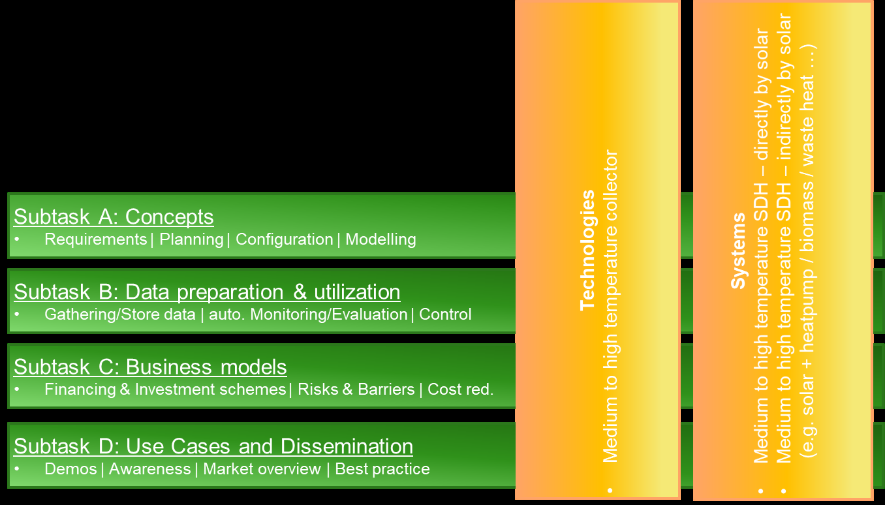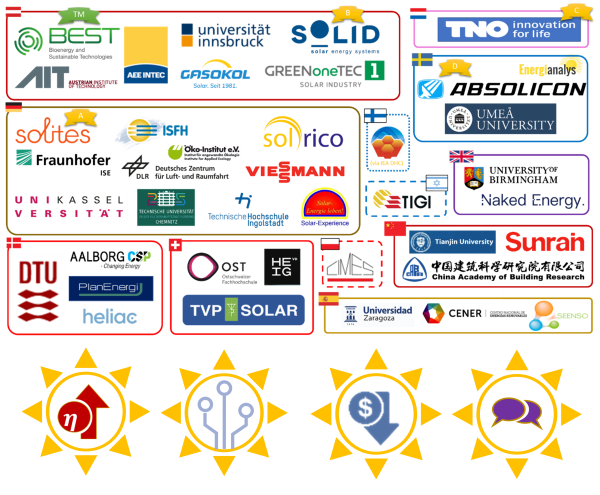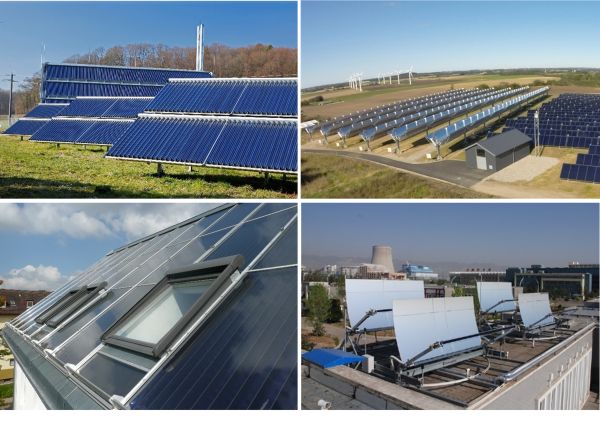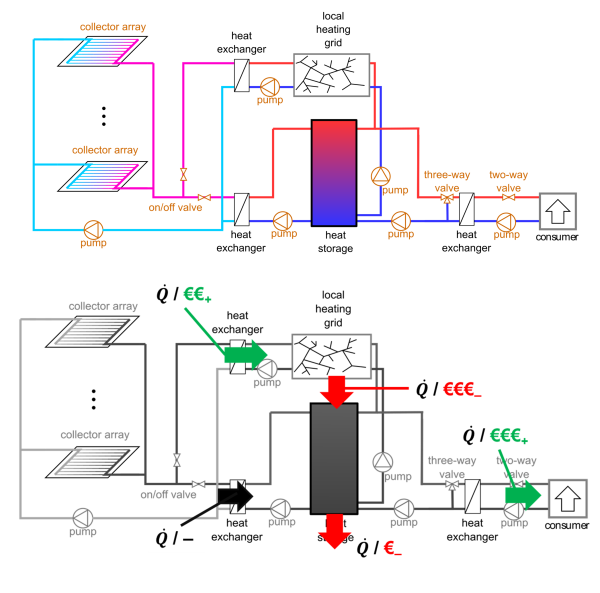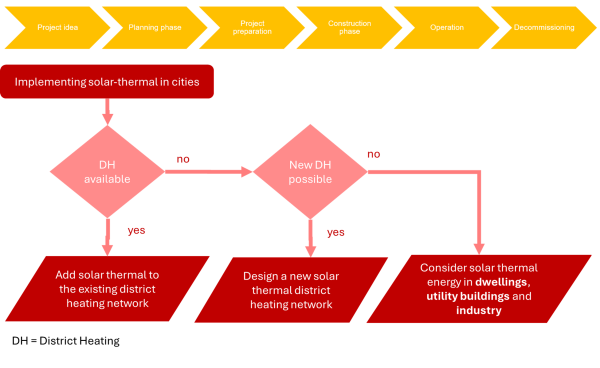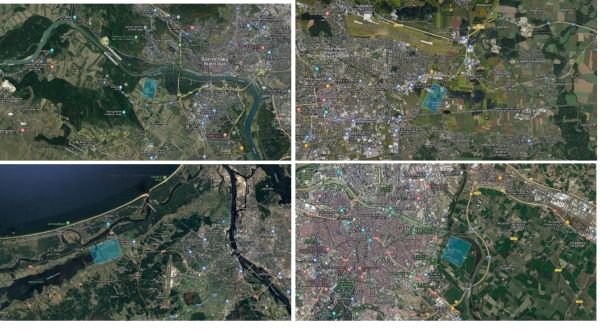IEA SHC Task 68: Efficient Solar District Heating Systems (Working period 2022 - 2024)
Short Description
The IEA Technology Collaboration Programme "Solar Heating and Cooling (SHC)" has set itself the goal of increasing the share of solar energy technologies in meeting the heating and cooling needs of buildings to more than 50% by 2050, thus making a significant contribution to reducing CO2 emissions worldwide.
In this context, the SHC Task 55 has already been successfully completed and dealt with the technical and economic parameters and requirements of very large solar thermal plants (>0.5 MW to GW). The work on the topic of solar district heating systems should now be continued in the new Task 68 - Efficient Solar District Heating Systems, and expanded to include latest issues and developments. The new task therefore pursues four main goals:
- Efficiently providing heat at the desired temperature level of local/district heating systems by solar technology
- Increasing the degree of digitalisation of solar thermal systems
- Reducing costs of solar local/district heating systems and identify new business models
- Raising awareness and spread in-depth knowledge regarding latest developments and results of solar local/district heating systems.
Task 68 is intended to provide a platform for research and industry to work together on the opportunities, challenges and benefits related to these main objectives on an international level under the leadership of Austria. For this purpose, Task 68 is divided into 4 subtasks:
- Subtask A: Concepts
- Subtask B: Data preparation & utilization
- Subtask C: Business Models
- Subtask D: Use Cases and Dissemination
In addition to the leadership of the entire task, Subtask B is led by an Austrian partner as well. Furthermore, a large number of leading Austrian experts from industry and science are involved in the national consortium.
The Austrian consortium will play a leading role in achieving the following results:
- Evaluation/further development of possibilities for the efficient provision of heat at medium to higher temperatures directly or indirectly through solar technology (e.g. coupling solar technology with heat pumps).
- Development and evaluation of requirements, concepts and configurations for the optimal design and construction of solar district heating systems for the efficient and cost-effective provision of heat at the desired temperatures of current district heating networks, considering seasonal storage.
- Further development and investigation of test methods for determining the performance of different collector technologies in field and laboratory tests.
- Describe and collect efficient solutions for collecting, storing and distributing data from heterogeneous devices at single and multi-plant level.
- Develop criteria, guidelines and measures for the validation of data from solar district heating systems and collect, summarise and evaluate techniques for the analysis, monitoring and fault detection of solar district heating systems.
- Comparison and evaluation of advanced control strategies at component (e.g. collector control) and system level (e.g. total system control).
- Workshops and lectures for industry and scientific experts on task results.
Project Images
Terms of use: The pictures listed underneath the header “Project Pictures” originate from the projects in the frame of the programmes City of Tomorrow, Building of Tomorrow and the IEA Research Cooperation. They may be used credited for non-commercial purposes under the Creative Commons License Attribution-NonCommercial (CC BY-NC).
Project Partners
Project management
Viktor Unterberger, BEST - Bioenergy and Sustainable Technologies GmbH
Project partners
- Christoph Rohringer, AEE - Institut für Nachhaltige Technologien
- Thomas Natiesta, AIT Austrian Institute of Technology GmbH
- Sabine Putz, SOLID Solar Energy Systems GmbH
- Fabian Ochs, Universität Innsbruck Institut für Konstruktion und Materialwissenschaften
Participants
- Austria (Operating Agent)
- China
- Denmark
- Germany
- Italy
- Netherlands
- Spain
- Sweden
- Switzerland
- Turkey
Contact Address
BEST - Bioenergy and Sustainable Technologies GmbH
Viktor Unterberger
Inffeldgasse 21b
8010 Graz
E-Mail: viktor.unterberger@best-research.eu
Web: www.best-research.eu

